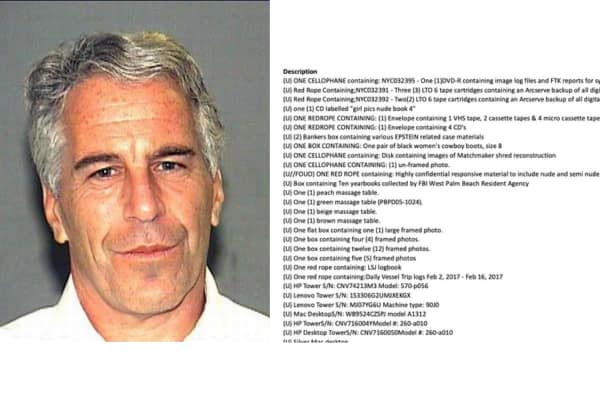In one of the most sweeping transparency moves in recent United States history, Congress has voted to release the long-sealed “Epstein files” and the public is searching for answers at record speed.
When President Donald Trump confirmed he signed the bill into law, attention immediately shifted to what the documents might reveal. For years, the Epstein case has symbolized secrecy and unanswered questions. Now, Americans want to know when they will see the truth and why one congressman stood alone against bipartisan agreement.
This article breaks down the release timeline, the political ripple effects, the legal implications and the reasoning behind Congressman Clay Higgins’ solitary dissenting vote.
Where Can I See the Epstein Files?
The Epstein files will be released on an official United States Department of Justice public website in a searchable and downloadable format. The release schedule is set by the Epstein Files Transparency Act, which became law in November 2025. Once the portal goes live, the general public will be able to access all unclassified records online.
Trump Signs Bill to Release Epstein Files and What That Means Now
The Epstein Files Transparency Act represents a significant move toward accountability. It requires the Department of Justice to publish all unclassified materials connected to Jeffrey Epstein. This includes investigative files, communications, court records, civil settlements and other documents that were previously sealed from the public.
President Trump’s signature came after overwhelming congressional agreement. The Senate approved the bill unanimously and the House passed it with a final vote of 427 to 1.
The public wants clarity and for the first time in decades, legislation is delivering it.
When Will the Epstein Files Be Released
The Department of Justice must release the documents within the timeline outlined in the Act. Most legal analysts expect the first wave of files to be published within 30 to 60 days of the bill becoming law. Redactions will be limited to protect victims, minors and individuals whose identities cannot legally be disclosed.
The files will include:
• Flight logs
• Visitor records
• Email and phone communication logs
• Witness interview notes
• FBI summaries
• Financial and offshore account records
• Civil settlement documents
• Search inventory lists from Epstein’s properties
The scope is extensive and unprecedented.
What Is Inside the Epstein Files
Interest in the content of the files has fueled searches for “Epstein files contents” and “what will be in the Epstein release.” While the full list will only be confirmed when the portal goes live, here is what legal experts expect to be included.
Communication Records With High-Profile Figures
Emails, call logs and correspondence with individuals who interacted with Epstein in social, financial or professional contexts.
Financial Documentation
Transaction records, wire transfers, offshore financial activity and asset movement related to Epstein’s criminal network.
Depositions and Interview Notes
Material from civil suits, witness statements and summaries from law enforcement.
Evidence Collected From Properties
Itemized lists and data retrieved from Epstein’s homes in New York, Palm Beach, the Virgin Islands and New Mexico.
Previously Sealed Legal Settlements
Certain settlement documents will be made public, unless releasing them would expose the identity of a victim.
The release is expected to reshape public understanding of Epstein’s connections and operations.
Who Voted Not to Release the Epstein Files and Why
The sole dissenting vote in the House came from Congressman Clay Higgins of Louisiana. Higgins, a former law enforcement officer known for his aggressive rhetoric, has often portrayed himself as a fearless outlier. Yet even by his standards, voting against a 427 to 1 measure drew national attention.
Why Did Clay Higgins Vote No Epstein Files
In his public statement, Higgins argued that the bill endangered innocent people:
“As written, this bill reveals and injures thousands of innocent people. Witnesses, individuals who provided alibis, family members and others. A broad release of criminal investigative files, delivered to a relentless media, will inevitably cause harm.”
He argued that the bill fails to protect individuals who are mentioned in investigative documents but are not involved in criminal activity. He said he supports transparency in principle but believes this version of the legislation abandons criminal justice norms designed to safeguard those connected to a case only incidentally.

Clay Higgins Voted No on Releasing the Epstein Files
Critics say that concerns from 427 other lawmakers were addressed through redactions, making Higgins’ position difficult to understand without further explanation.
Either way, his solitary opposition has made him more searched and scrutinized than ever.
The release of the Epstein files is expected to trigger significant consequences across political, legal and cultural landscapes. This is not simply a document drop. It is a reckoning.
Political Impact
Names appearing in the files could become a focal point of the 2026 election cycle. Some individuals may face renewed investigations or public pressure.
Legal Consequences
Victims may use the newly released information to pursue civil claims. Lawyers expect immediate legal activity once the first files are made available.
Media Response
News organizations will break down the documents in real time. The Epstein files are likely to dominate headlines for months.
Social and Cultural Response
For years, the Epstein case has symbolized institutional secrecy. The release of the files challenges that secrecy and may change the public’s expectations for transparency in future cases involving powerful individuals.
How to Access the Epstein Files When They Are Live
When the DOJ portal launches, the files will be organized by category and easy to navigate. They will be:
• Searchable
• Downloadable
• Indexed for browsing
• Updated as additional documents are cleared
Why the Epstein Files Release Matters
This release goes beyond public curiosity. It is a moment that tests the integrity of the justice system, the responsibility of public institutions and the public’s right to know.
The Epstein files may become a model for transparency laws in the future. They may influence political outcomes, reshape public narratives and bring long-awaited validation to survivors.
Above all, they represent a shift in how society demands accountability from the powerful.
As searches for “Trump signs bill Epstein files,” “when will the Epstein files be released,” and “Clay Higgins Epstein vote” dominate online discourse, one fact is clear. The world is waiting.
For some, the release will confirm suspicions.
For others, it will expose painful truths.
For many, it marks the first time the public has been trusted with the full picture.
Congress voted for transparency. The public insisted on answers. And soon, the Epstein files will finally be made available for all to see.
This is not the end of the story. It is the beginning of accountability.


